6 sneakily dangerous things in the garage
The garage is a space that can be many things. It can be a shrine to a favorite car or a workspace that’s chock full of tools. Depending on who you are and what you enjoy in the garage, there are a number of things that may conspire to maim and injure the relatively delicate human body. Some of those are obvious. They wear warning labels and tamper-resistant guards aimed at protecting us from ourselves. Other items in the garage are just as dangerous but come with no warning label. Like a snake in the grass, you have to be aware to even know you are in danger. Here are six of those items you might have and not even think about.
Sleeves

We all wear clothes. Okay, most of us wear clothes and all of us have likely said the old saying about rolling up our sleeves and getting to work. That saying exists for a reason. As much of a danger as it is to be working on your hot rod in the nude, it can be just as dangerous to have loose clothing on. The machines we work on are very powerful, even the small ones like cordless drills, and are capable of catching a bit of cloth and whipping it into a fury.
This is often discussed when working with big equipment like lathes or milling machines, but an alternator pulley or cooling fan is just as—if not more—powerful. Adjusting carburetor tuning or ignition timing on an engine puts us in a place where we can get pulled into things quickly if not careful. An unbuttoned flannel shirt or hooded sweatshirt with strings hanging down is just as dangerous as sleeves too, so it pays to be conscious of what you are wearing and how it might conspire to hurt you.
Chips
No, we aren’t going to stop you from crunching away on some Lay’s while in the garage, but there are chips to be scared of. Any time you are drilling or turning you are cutting away small pieces of metal that are called chips. These slivers of metal are dangerous at first because they are often hot and thrown away from the workpiece. Safety glasses are critical there. Once they hit the floor the danger is not over though. Those chips are hot for a little while, but often sharp forever. They can become prickly little tire deflators in short order if you forget to sweep up or roll a tire over them without thinking.
Heavy things up high
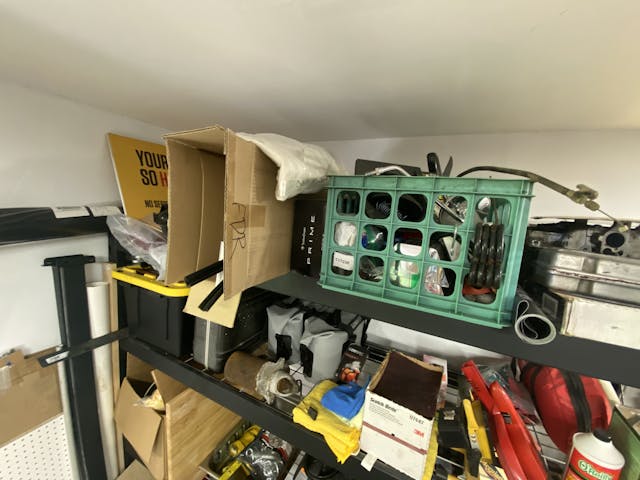
I’ll admit I’ve stood on a stool to grab that bin off the top shelf only to find it’s heavier than I remember when it finally slips off and all the weight is in my hands. Luckily that ended okay but it was merely luck that I wasn’t injured due to falling off the stool or dropping that bin on myself or something I care about. Garages serve as storage as much as a workspace for lots of us and while it is funny to think that the storage side could potentially be dangerous, it happens.
The fridge contents
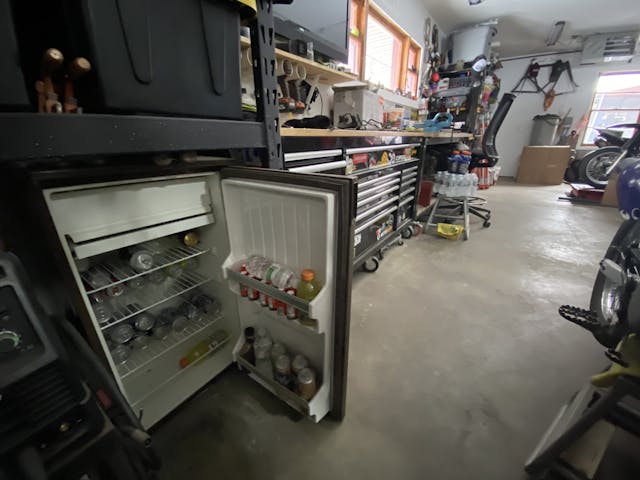
The garage fridge is a sacred place to some. It can help lubricate our tongues until the fun stories come out around our buddies. It can also help with press-fit parts by chilling them until they shrink just enough to make popping things in place a little easier. Lastly, it can cause us to forget the basics and not respect the power of the tools and vehicles we work on. When in doubt, stay sober until the project is done and it’s just the clean-up left.
Chargers or tenders
Sadly, we are not talking Dodge or chicken here. Seasonal storage is the (unfortunate) norm for many owners and that means keeping batteries topped up so cars will be ready when driving season arrives. There is also the rising popularity of battery tools which require occasional charging to keep in working order. Leaving either of these items plugged in for extended periods is often safe as the devices have fuses or safeties built in, but those are not fail-proof.
All it takes is a battery to get overcharged, or a wire to get rubbed a few too many times and cause an arc and suddenly there’s fire. It often happens silently and causes damage quickly. Check your chargers or tender regularly to see if they are warm to the touch or otherwise defective. If possible, unplug them when not needed as it will minimize the risk of something melting down without you being there to catch it.
Air

Yes, be scared of everything! Just kidding, this is really only for compressed air. As tempting as it is to use compressed air to blow dust and debris off your skin while working, it carries risks that not all are aware of. Most air lines in shops run at least 90psi of pressure and when that is funneled through a nozzle and pointed at our relatively porous skin there is the chance an air bubble can form under our skin. That is called an air embolism and causes serious health concerns. Blowing your skin off also can force contaminates into you skin rather than off of it. Human bodies cannot process many of the chemicals that are common in garage projects so on a long enough timeline this will poison you from within.
***
Of course, someone could make an argument that just about anything is dangerous and it would likely hold some truth. Anyone picking up tools and working in the garage accepts some risk but it is always best to understand the dangers you are engaging with and understand how to mitigate the risk if appropriate.
***
Check out the Hagerty Media homepage so you don’t miss a single story, or better yet, bookmark it. To get our best stories delivered right to your inbox, subscribe to our newsletters.

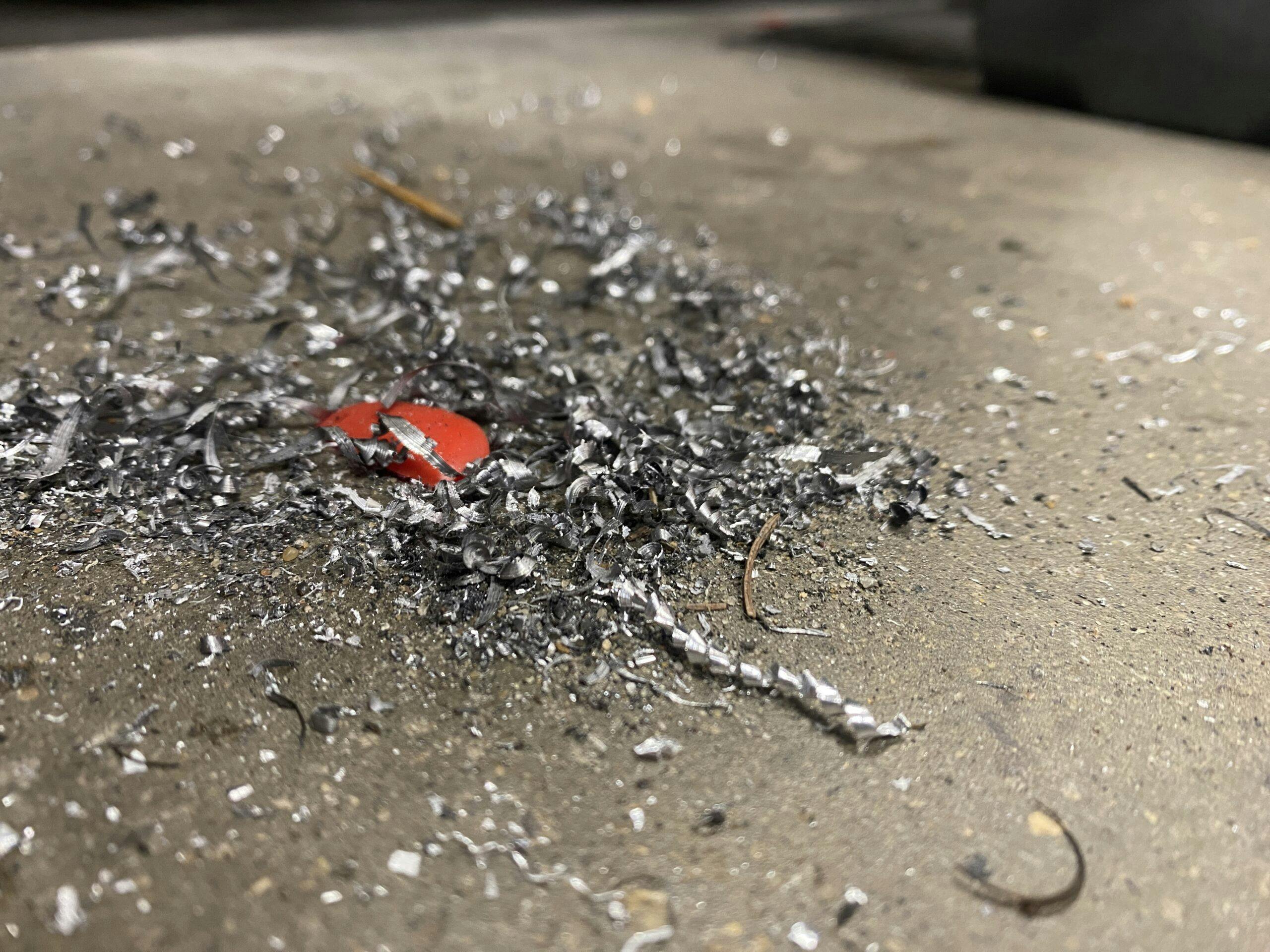
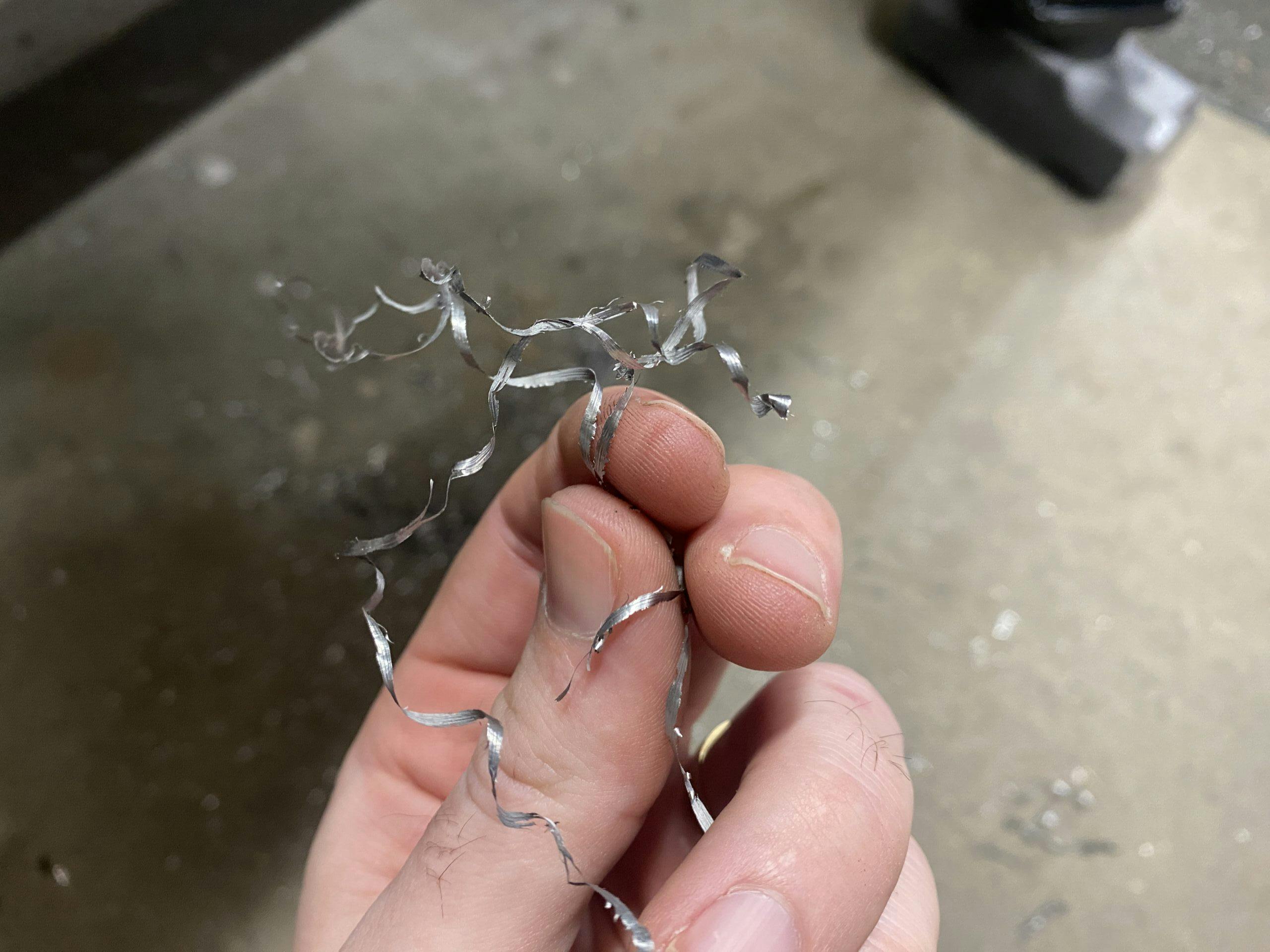
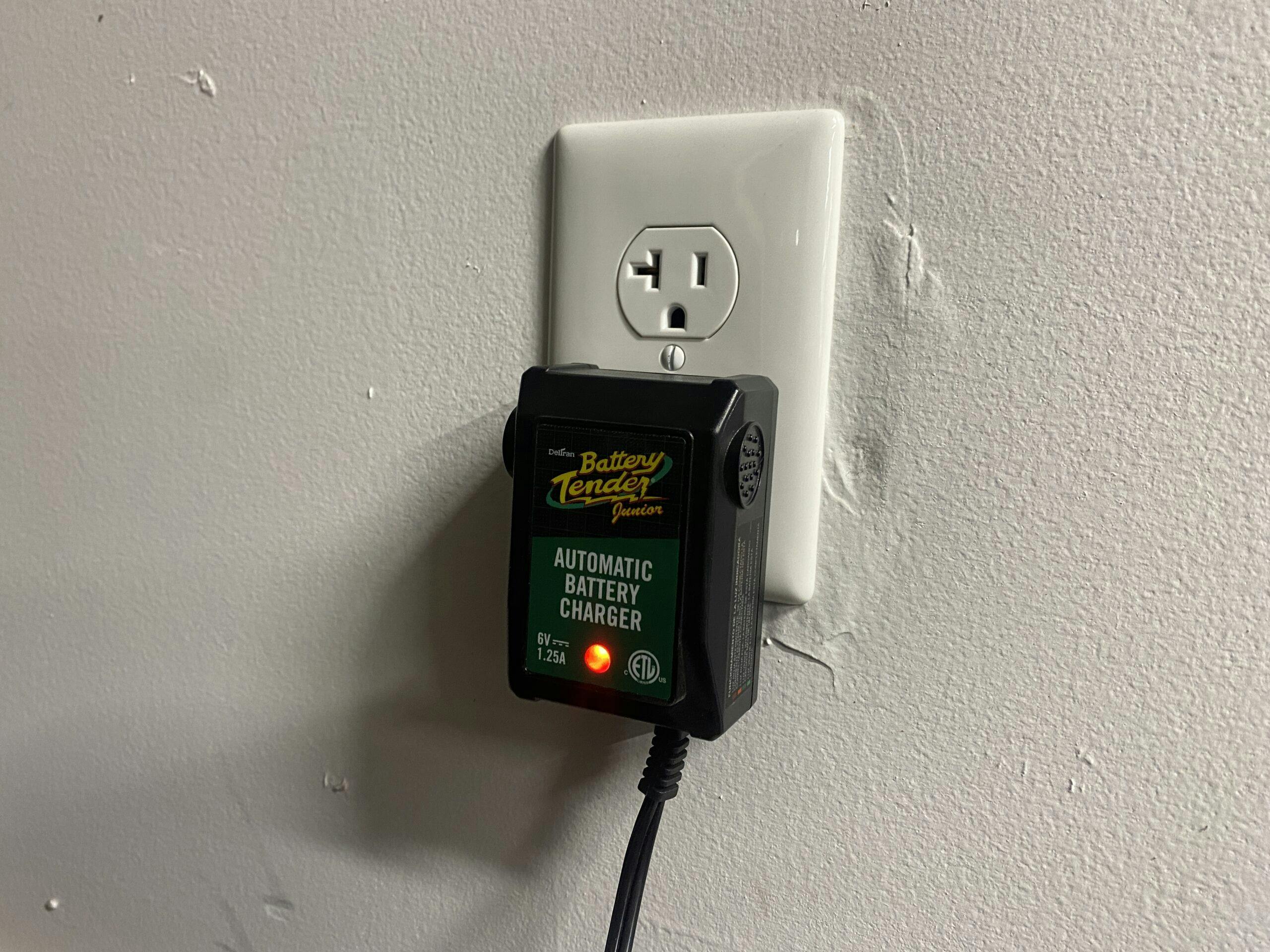
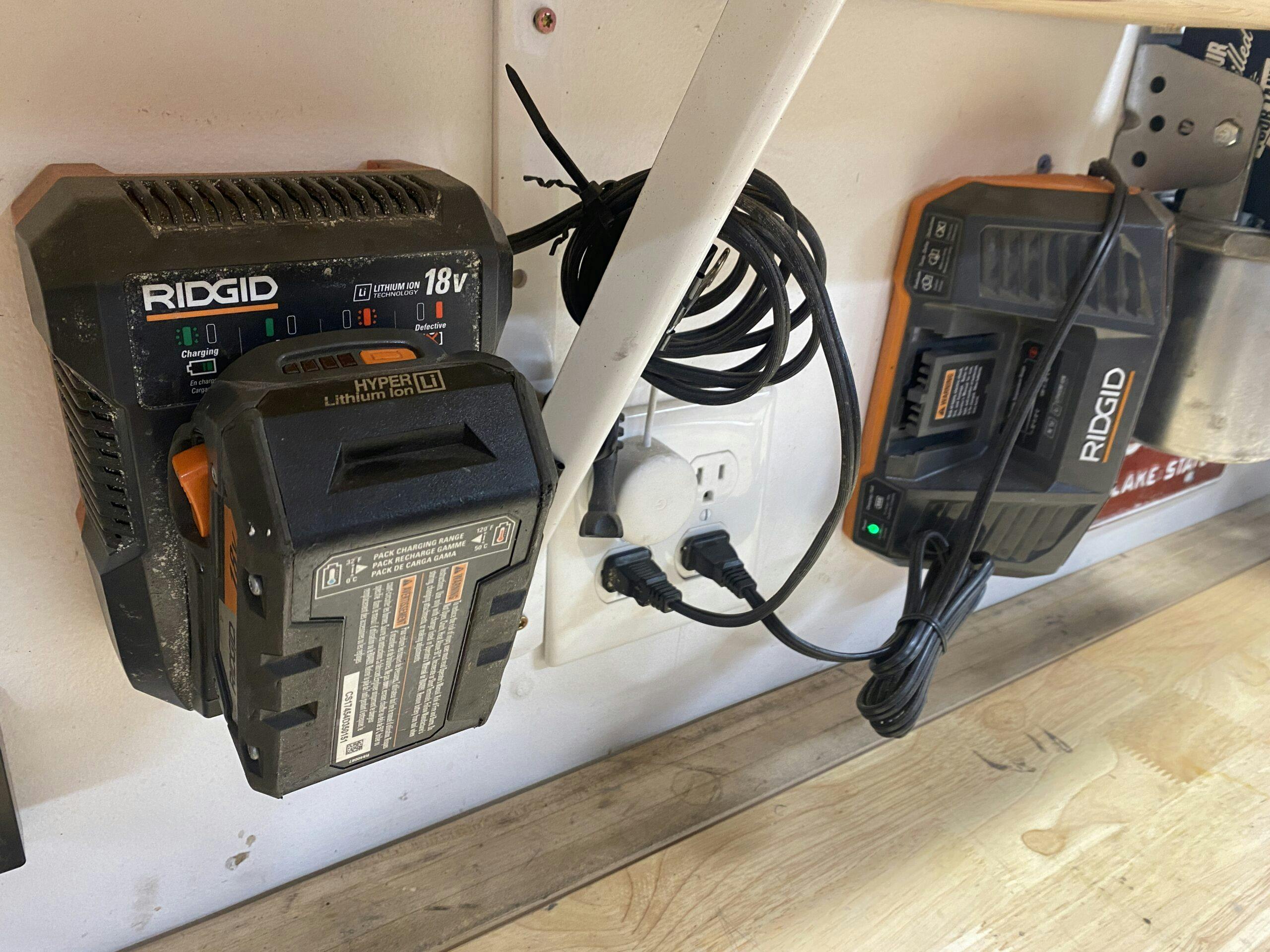


Saved two lives . . .
#1 – High school buddy installing a Hurst shifter in his 57 Ford. Rear wheels off, bumper jack on asphalt. (You see this coming, right?) He’s under the car, I see it start to move and I yelled “Get out! It’s moving!” He didn’t stop to ask, but shoved himself out from under the car which crashed to the ground – frame all the way down on the ground – about a second later. I think it scared him, I know it scared the heck out of me.
#2 – Teaching in a vocational school, student asked me if he set the range on the multimeter correctly, could he measure the voltage in the wall socket? I was facing away from him and turned around FAST, to see him holding the test leads to a pair of paper clips (one in each hand) and about to stick them into the outlet. I yelled “STOP!!!!!” he did, and then looked at me with total innocence (and total ignorance) and asked me what was the matter. Darwin is still mad at me . . .
Don’t forget oil slicks. (I own a Corvair.)
Nothing like shop accident stories to get the comment section buzzing…….as a lifelong machinist nothing gets a conversation going among gear heads like shop mishaps. Though slightly off topic in this case.
Another facet of drill chips – think about your fuzzy shop assistant.
I work for a custom manufacturing company that builds very large equipment, our lathes are 24″ swing and larger. About 4 weeks ago, one of our workers, wearing a hoodie (Shop foreman should be fired for allowing it), got his sleeve caught in the lathe. It pulled him into the lathe and fractured his skull, broke his cheekbone, eye socket, jaw, serious ear damage (practically ripped it off), and general facial disfigurement – he’s lucky to be alive. No long sleeves… it’s serious. NO LONG SLEVES!!
And another word of warning — never use a grinding wheel in a grinder that exceeds its limits. ie: Don’t use a 3600 rpm wheel in a 10,000 rpm machine. Those have exploded and done incredibly serious damage. Which leads to another warning. In our industrial accident, the wheel exploded – but the user wasn’t hurt, an innocent bystander had his shin shattered that had nothing to do with anything. So — in your Friend’s garage,, still keep your head on a swivel and be aware of your surroundings.
Great, great comments . . . all!
Anyone with a couple years under their belt will have some stories to relate. I have been fortunate with situations involving all of the same power tools and luckily survived and learned from my mistakes.
We have a breakfast group that meets weekly and there is one over 60’s person that I often question how he has survived over the years.
He came to breakfast earlier in the year with his foot long beard cutoff. Commenting on that, he said “I got it caught in the weedeater” (still trying to figure that one out)
Why you would tell that to your car buddies is a big question to me and no I am not making this up. One of his other friends later said that he had nipped a finger tip in hedge trimmers. Needless to say, I am not riding in his car again for fear of something falling off.
Pretty sure I’d better get all my cars and bikes out of the garage to BE REALLY safe. I hear those thingies have engines and such. And GASOLINE! Once I’m rid of them I’ll finish work on the marshmallow suit I’ll be wearing 24/7.
Mid-’60s. GMC Engineering garage. To exit the garage (in a truck), the driver would pull up to a post having a sensor that opened the 15-ft high bi-fold doors. He’d stop and wait for the doors to open. From experience, the mechanics all knew that if they started anywhere in the garage, the air pressure would build up (and the warning buzzer would shut off) before they got to the sensor. However, this one time, unknown to the driver, the air compressor belt had been removed to work on the engine. It’s been too long ago for me to remember how the driver was able to stop after he went through the doors and into the yard.
Note: This was about 10-yrs prior to federally mandated spring brakes (that would automatically apply upon loss of air pressure).
How about playing with gasoline? On the back side of my house, a ranch which has a half walkout basement in the back I have down spouts that go into dry wells in the yard, 20 feet (2 10 ft drain pipes ) from the house. The gutters are maybe 15 feet or so from the ground. So one day I see a chipmunk in the ‘middle’ of the yard and he disappeared. Humph? Next couple days I see this again so I went to the area where I had seen his Viet Cong disappearing act. There was a good sized hole in the turf where the dry well is located. Having too many of my flowers ruined by the little buggers I figured I’d pack the hole with rocks and stop that nonsense. For about a week we battled every day, me more rocks, him digging them out or around. Enough. So fully realizing how dangerous gasoline is, I got about an inch in a soup can. So not really too much. I dumped it into the hole and stepped back as far as I could and toss a stick match to the hole. Whooooof…….. it took about the 5 seconds for the vapors to go into the underground drain,, up the down spout to the gutter. I think the slight breeze pulled the vapors up into the downspout. Flames shot out of the gutter where it connects to the downspout at the roof line. I suppose I am fortunate to have not caused more problems but this is a good example of doing something dumb with full knowledge its not something you should do. I figured I was far away from the house, underground, etc. Morale is dont mess with gasoline.